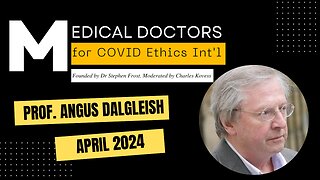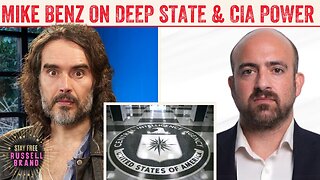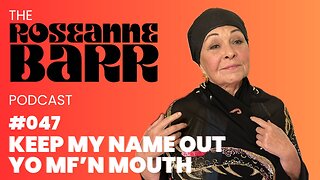Dr Scott McLachlan
DR SCOTT MCLACHLAN
I studied for my undergrad in nursing 28 years ago in Australia but didn’t end up completing to registration as I moved sideways into Computer
Science and Information Technology (CSIT). I worked for nearly two decades in CSIT in a combination of systems engineering, infrastructure and solutions architecture, culminating with a whole-of-country multi-million dollar project with the NZ Ministry of
Health that designed workflows for health service provider regulation, created standardised health records identifiers (NHI numbers) and integrated many disparate systems behind an enterprise service bus (ESB) framework. It was at this point I returned to
academia, completing graduate studies in:
1. Information Science (Grad Dip in InfoSc) focusing on privacy and security of electronic health records, the weaknesses in existing approaches to anonymisation and pseudonymisation that allow reidentification of health records, and approaches for generating realistic synthetic health data using safe and privacy-preserving publicly available aggregate datasets.
2. Health and Cyber Law (DipLaw, GDL and LLM) focusing on areas such as clinical negligence and the emotional impact of disciplinary proceedings, medical consent and recent broadening of Gillick competence into permanent and life-changing treatments through an analysis of post-covid court cases in common law jurisdictions, and how Orwell predicted the current shift in public policy towards Marxist totalitarianism.
3. Data Science (MPhil Sc) research project investigating and developing processes for generating and validating realistic synthetic electronic health records (a digital twinning process).
4. PhD in Computer Science in which I completed possibly the first ever doctoral project to investigate the recently invented domain of Learning Health Systems (real-time use of ML/AI and big data in healthcare) in a little over two years (the shortest in the history of the school at QMUL) and undertook a first postdoc developing data approaches and a patient-and-clinician facing mobile app-based clinical decision support solution platform using Bayesian networks.
During 2021-2022 I was granted a prestigious Royal Academy of Engineering (RAEng) fellowship looking at the regulation and safety standards
for using autonomous systems - focusing on aerial
drones and motor
vehicles and
including developing a process for interpreting
traffic law as a process or flow diagram in order to develop Bayesian models and evaluate whether advanced driver assistance systems (ADAS) could be adherent to the law.
My current work focuses on developing clinical decision support tools using large publicly available aggregate and anonymised datasets as the
initial or formative data source. My most recent outputs are a literature review of the myriad of generally statistical approaches and models developed for singular maternity-related clinical health issues (i.e.: for prediction of GDM, preeclampsia, stillbirth
etc.), and a Bayesian-based
maternal outcomes model for whole-of-pregnancy decision-making. “
During Covid I also worked with a team that included people such as Profs Norman Fenton and Martin Neil, Dr Jonathan Engler, Dr Clare
Craig, Dr Jessica Rose and others. I was possibly the first person to highlight the safety signals as they started to develop in the US VAERS dataset (here,
and later here)
that was heavily cited by people like Dr Peter McCullough and which is work that Jessica went on to spearhead with great effect. I pointed out the lies, deceptions, poor quality statistics and assumptions that were used as the basis for publicly lauded fearmongering
Covid predictive models like those of Neil Ferguson and David Fisman (here),
and with the wider team we exposed ongoing issues with the ONS covid statistics that were probably instrumental in misleading the wider public (here
and here)
and which led to the Office of the Statistics Regulator agreeing with Profs Fenton and Neil, Clare Craig and myself - that the ONS data was unfit for use in making claims about vaccine safety and efficacy.
-
 1:27:29
1:27:29
Charles Kovess
11 days ago $2.57 earnedProfessor Angus Dalgleish
1.2K2 -
 1:50:54
1:50:54
Jewels Jones Live
2 days agoUNDERSTANDING NEXTGEN MARXISM | A Political Rendezvous - Ep. 76
75.2K68 -
 8:22:56
8:22:56
Akademiks
1 day agoAll Will Be Revealed! Drake vs Kendrick vs The Riddler. Who Lied, Who Snaked, Mole Finally Revealed!
175K117 -
 1:08:38
1:08:38
Russell Brand
2 days ago“You’re Going To Get KILLED!” Mike Benz EXPOSES CIA Secrets Like NEVER Before - Stay Free #363
390K810 -
 1:35:13
1:35:13
Roseanne Barr
2 days ago $74.67 earnedKeep My Name Out Yo M*Therf*Cking Mouth! | The Roseanne Barr Podcast #47
202K433 -
 1:19:00
1:19:00
Steven Crowder
3 days agoBradley Martyn and Vitaly's Hollywood Pedo Bust Goes Wrong! Guests: Alex Rosen | Vivek Ramaswamy
700K1.11K -
 53:40
53:40
The Osbournes
6 days ago $1.11 earnedWould You Eat a Monkey? Osbourne's Wildest Meals
105K19 -
 1:19:01
1:19:01
Steve-O's Wild Ride! Podcast
3 days agoMike The Situation Went To Prison & Owes Millions, But Remains Grateful - Wild Ride #213
111K15 -
 9:45
9:45
RealReaper
2 days ago $7.17 earnedVelma is The Worst Show of 2024: Part 1
103K111 -
 23:13
23:13
InfiniteWaters(DivingDeep)
1 day agoBiggest Solar Storm in 20 Years Could Cripple Internet, Phones, And Power Grids (Prepare Now!) 👁️
115K156